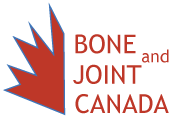Delirium
Hip fracture patients are at high risk for delirium preoperatively, while at the same time about 17% of hip fracture patients enter the hospitals with a known diagnosis of dementia. In addition, a significant unknown number of patients have cognitive deficits that are unmasked at the time of fracture.
Occurs in up to 65% of hip fracture cases and is frequently under appreciated in its clinical consequences. Is usually caused by multiple co-occurring precipitants and therefore requires a comprehensive medical assessment that includes history review, physical examination and investigations.
Is not always reversible, even after the underlying precipitants have been corrected, therefore delirium prevention should be a priority.
Events occurring in hospital that can increase a patient’s risk for developing postoperative delirium include the use of physical restraints, inappropriate use of medications, use of in-dwelling urinary catheters, inadequate nutrition and iatrogenic complications.
Contributes to mortality, postoperative complications functional decline, length of hospital stay and early placement into long-term care.
Prevention and management through a comprehensive standardized protocol can reduce delirium in one-third and severe delirium in one-half of cases.
Multi-component preventative strategies have been shown in randomized controlled trials to prevent 1 case of delirium for every 7 patients treated with such a strategy
Dementia
Dementia is a syndrome of progressive decline in multiple areas of cognitive function. Diagnosis must include memory impairment and at least one of:
- Aphasia (language problem)
- Apraxia (impaired ability to do purposeful movements)
- Agnosia (failure to recognize or indentify objects)
- Executive Function Disturbance (abstract thoughts, plan, initiate, sequence, monitor)
Deficits must eventually lead to a significant inability to maintain occupational and social performance (Diagnostic and Statistical Manual of Mental Disorders IV). The estimates of the prevalence of dementia range from 2.4 % among persons aged 65-74 years, to 34.5 percent among those aged 85 and over (Loney, Chambers, Bennett, Roberts & Stratford, 1998).
Occurs frequently amongst patients that come from community living situations (17% of patients), and many are diagnosed after admission to hospital.
Dementia is the leading risk factor for delirium, and is underlying in two thirds of delirium cases.Significant factor for patients seeking rehabilitation as managing the cognitive and behavioural symptoms of dementia is perceived to influence healthcare professionals’ abilities to effectively deliver care.
Relational and environmental approaches are effective in influencing and modifying cognitive and behavioural issues, and healthcare professionals can successfully care for these patients after learning the knowledge base and clinical skills to assess and treat dementia.
Depression
Depression occurs in 10-30% of hospitalized older persons and is frequently mis-diagnosed, under-diagnosed and missed all together. This can slow the recovery process. Symptoms of depression amongst older persons are unique with complaints that often focus on somatic symptoms. Since patients often demonstrate an inability to concentrate, they can present as if they have memory impairment or cognitive dysfunction. Early detection through screening is important to differentiate depression from cognitive decline through delirium and dementia. It is difficult to diagnose depression in the setting of delirium and therefore requires that the delirium be addressed first. Appropriate management of depression can lead to improved clinical outcomes and shorter lengths of stay.
Fast Facts About Delirium, Dementia and Depression in Hip Fracture Care

